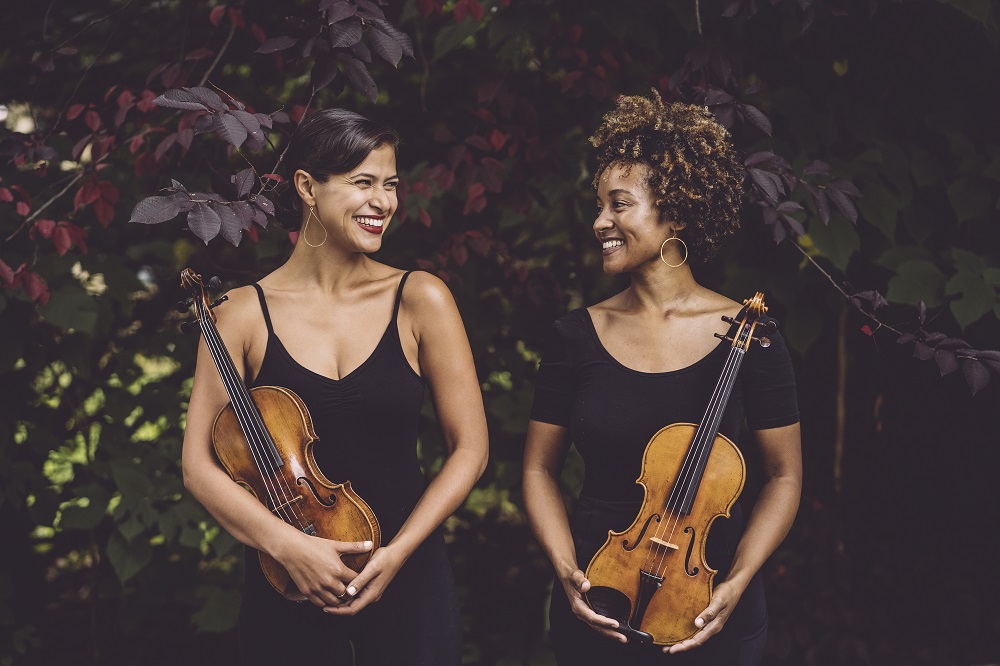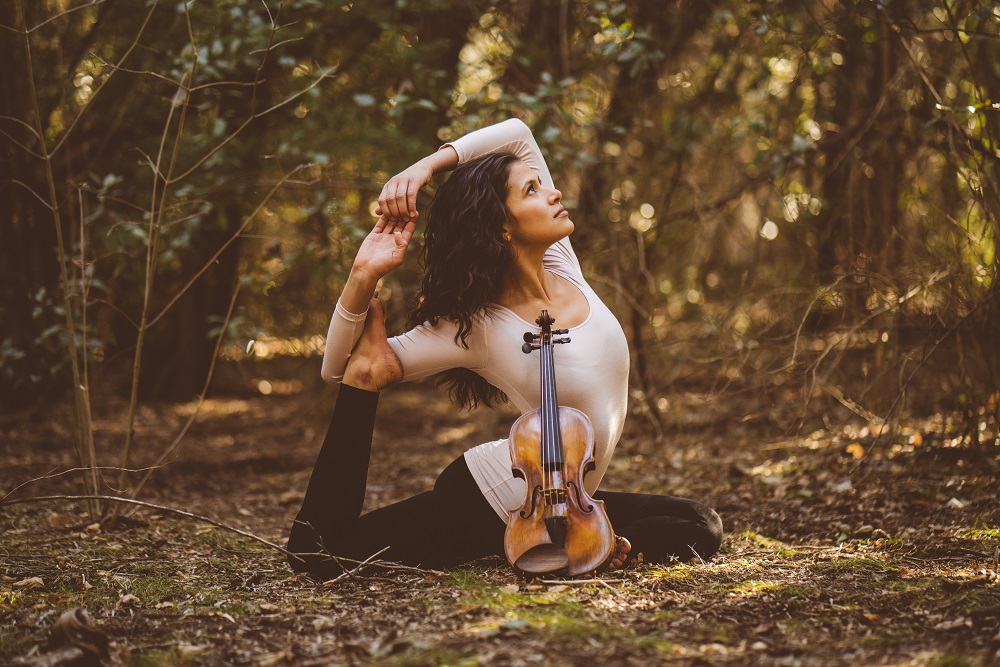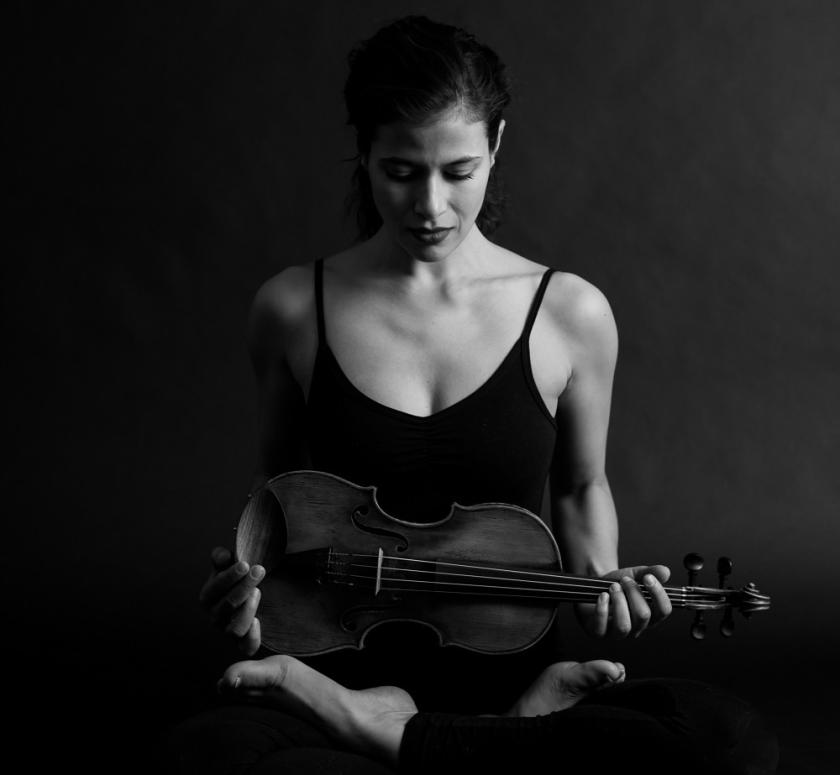In my second year as a violin student at the Curtis Institute, my right arm started going numb from my elbow to my fingertips on a fairly regular basis. It was rather like how your limbs feel right before they fall asleep: not full-on pins and needles, but a dull, hot emptiness, like there was no blood to keep that piece of me alive and vibrant. I was overworked, sleep-deprived, and using my body as a landfill for garbage like Entemann’s donuts, Red Bull, and DeKuyper Sour Apple Pucker. The arm numbness was exacerbated by sitting, so I had to be excused from orchestra regularly, incurring the wrath and eye-rolls of the Curtis orchestra manager.
My mentors and fellow classmates were as clueless about how to remedy my issue, let alone what might be causing it, as I was. The best advice anyone could give me was to go see the local “hand doctor”, whose solutions to musicians’ ailments almost always involved a scalpel. Finally, a friend suggested that I go see a Rolfer. I had no idea what that meant, and frankly I’m still a little hazy on it, but by that point I was just desperate to have a functional bow arm.
The Rolfing worked, sort of, but only after I’d shelled out thousands of dollars for the prescribed ten sessions of treatment, many of which had little or nothing to do with my actual issue. My numbness mostly went away - perhaps from the hands-on bodywork or maybe just due to my own sheer will - but each time the sensation showed signs of returning in the months following, I grew terrified. I had no idea what the numbness meant or how to fix it on my own.  Fast-forward to the summer of 2009, when I stumbled into my first hot yoga class in lower Manhattan feeling anxious, heartbroken, and lost, with the aim not of managing violin-related injuries but rather of reclaiming my mojo out of the ashes of a relationship-gone-wrong. I remember every detail of that class: the view of the Flatiron building across the street, the woefully unabsorbent fabric of my outfit, the name of the kind student to my right who graciously demonstrated anything I didn’t immediately understand (Hilary). I emerged drenched and exhausted, but like a fire had been ignited within me. From my first 90 minutes of focusing, breathing, and balancing on a mat, I knew I had found home.
Fast-forward to the summer of 2009, when I stumbled into my first hot yoga class in lower Manhattan feeling anxious, heartbroken, and lost, with the aim not of managing violin-related injuries but rather of reclaiming my mojo out of the ashes of a relationship-gone-wrong. I remember every detail of that class: the view of the Flatiron building across the street, the woefully unabsorbent fabric of my outfit, the name of the kind student to my right who graciously demonstrated anything I didn’t immediately understand (Hilary). I emerged drenched and exhausted, but like a fire had been ignited within me. From my first 90 minutes of focusing, breathing, and balancing on a mat, I knew I had found home.
As the days ticked by and I began to fall out of love with a dishonest man and in love with a yoga practice that demanded that I engage deeply, unrelentingly honestly with myself, fellow violinist and one of my dearest friends, Melissa White (pictured above with Urioste), was simultaneously dipping her toes into the same practice a few hundred miles north. That October on an early-days Sphinx Chamber Orchestra tour, we got to chatting about our experiences with integrating yoga into our hectic lives as performers: lo and behold, she was just as enamoured as I was and the benefits that we were both discovering as a result of practicing regularly had, in just a few short months, already transformed our relationships with the violin.
We noticed improved muscular control in our playing, a healthier balance of compassion and discipline in the practice room, an easier time managing performance nerves, and a greater sense of peace with the world around us (which, let me tell you, really comes in handy at airports). Both active teachers within our respective musical careers, we began noticing ourselves advising students to explore principles learned in yoga classes as much as those from our own musical studies.
The truth is, the two fields are inextricably linked, and out of this realization the idea for our programme, Intermission [see link below], was born in 2017. What started as little more as a conceptual pipe dream - sharing pearls of yoga wisdom with our fellow musicians over dinner at our shared kitchen table in Manhattan - has grown into a multifaceted enterprise that includes retreats for professional musicians, sessions for music students, and a free app [link below] that offers music, movement and mindfulness tools to musicians of all ages and stages.  Yoga is by no means a panacea, and nor is it a cult. The very best yoga, at its core, is science — non-invasive, basic, “the foot bone’s connected to the... leg bone!” science. I am not a medical professional, nor am I an anatomy scholar, but what I am, now, is a recently certified yoga teacher and longtime devoted practitioner who is acutely aware of her body, in tune with how it feels at any given moment. I have a healthy enough understanding of what joint/muscle/ligament is supposed to go where so that when something doesn’t feel good, I know how to move it to correct the problem and prevent more serious issues. I know to take breaks when I feel stiff or fatigued from playing. I know that it is okay to admit when I feel pain or discomfort, and that it’s also okay to tell people off when they roll their eyes at you.
Yoga is by no means a panacea, and nor is it a cult. The very best yoga, at its core, is science — non-invasive, basic, “the foot bone’s connected to the... leg bone!” science. I am not a medical professional, nor am I an anatomy scholar, but what I am, now, is a recently certified yoga teacher and longtime devoted practitioner who is acutely aware of her body, in tune with how it feels at any given moment. I have a healthy enough understanding of what joint/muscle/ligament is supposed to go where so that when something doesn’t feel good, I know how to move it to correct the problem and prevent more serious issues. I know to take breaks when I feel stiff or fatigued from playing. I know that it is okay to admit when I feel pain or discomfort, and that it’s also okay to tell people off when they roll their eyes at you.
On a deeper level, the practice of yoga has allowed my body to clear space for whatever it is that I need at any given moment — stillness, clarity, compassion, fire, deeper curiosity, patience — and has helped me to cultivate the ability to pause before I react. Yoga is a way of life that includes a physical practice, yes, but asana are also portals to anything deeper that you need or want: mental focus, meditation, emotional expansion, deep spirituality, or anything else entirely personal or perhaps even undefinable. Love. Self-love: perhaps the most fundamental kind.
And so, here we are now, amidst a bout of international panic due to COVID-19/coronavirus/the "beer" + "germ" emojis (the latter being my preferred method of depicting it in print). The classical music industry is certainly no stranger to the havoc it’s wrought - in fact the performing arts seem to be taking one of the biggest hits, as our craft depends on large gatherings of people showing up to experience that which we've worked so hard to prepare. Concerts are cancelled, travel is restricted or downright impossible, and weeks, months, years of preparation for performances, auditions, and projects have seemingly evaporated into thin air. Few have been spared, from the sparkliest opera stars to those of us scraping together the next month’s rent through more intimate gigs - scrolling through social media this past week, I feel truly devastated for my friends, colleagues, and students, all of whom appear to be affected in some way or another by the fallout of this devastating pandemic.
Watch Elena Urioste and Melissa White in action
Whatever our thoughts or practices regarding the health concerns of the coronavirus, it appears none of us are immune to the psychological, logistical, and financial ramifications of the virus and our governments’ attempts to manage its spread. I wish that there was something I could do to salvage the cancelled concerts (my own included), soothe the crushing disappointment of travel plans gone awry, and slow the spread of this terrible virus. In all honesty, I’m immensely worried myself - how will I get through the next few months financially, how will this mess affect my UK spouse visa application which has taken months to compile and years off my life? - but I know that realistically, none of these things are within my control and are ultimately less important than keeping others and myself safe. I could join the mass hysteria, scream and moan and hoard toilet paper and blame people and feel sorry for myself… or I can choose to do what my decade of yoga experience and 200 hours of teacher training has taught me:
Pause. Notice. Breathe.
One silver lining of this pandemic has been that I’ve observed unprecedented levels of generosity and compassion from my fellow musicians, many of them offering videos of themselves pouring their hearts out through their music, teaching tips and advice, and virtual shoulders to lean on. My own powers to control this virus and its associated fallout are obviously limited, but I do feel confident in my ability to bring large swathes of people - nervous performers, squirmy kids, skeptics, Type A overachievers, and habitual worriers alike - into a place of calm through slow, mindful breathing. I know how to regulate my own heart rate, manage my anxiety levels, keep my body busy in productive ways, and pause before reacting impulsively or potentially destructively. Yoga has afforded me these tools, as a musician and a human, and now, through our own little video offering, Melissa and I would like to some of share them with you in the hopes that they’ll provide some small comfort during this time of great uncertainty. I’m determined to find a way to help my fellow musicians, in moments of struggle and relative normalcy alike, and I hope that the intersection of my two passions — music and yoga — can afford my fellow humans even a fleeting moment of solace.
Elena Urioste and her husband, the pianist Tom Poster, are also offering "#UriPosteJukeBox, the self-isolation, self-entertainment project...as we wait out COVID-19!". Now on YouTube (click on the hashtag)














Add comment